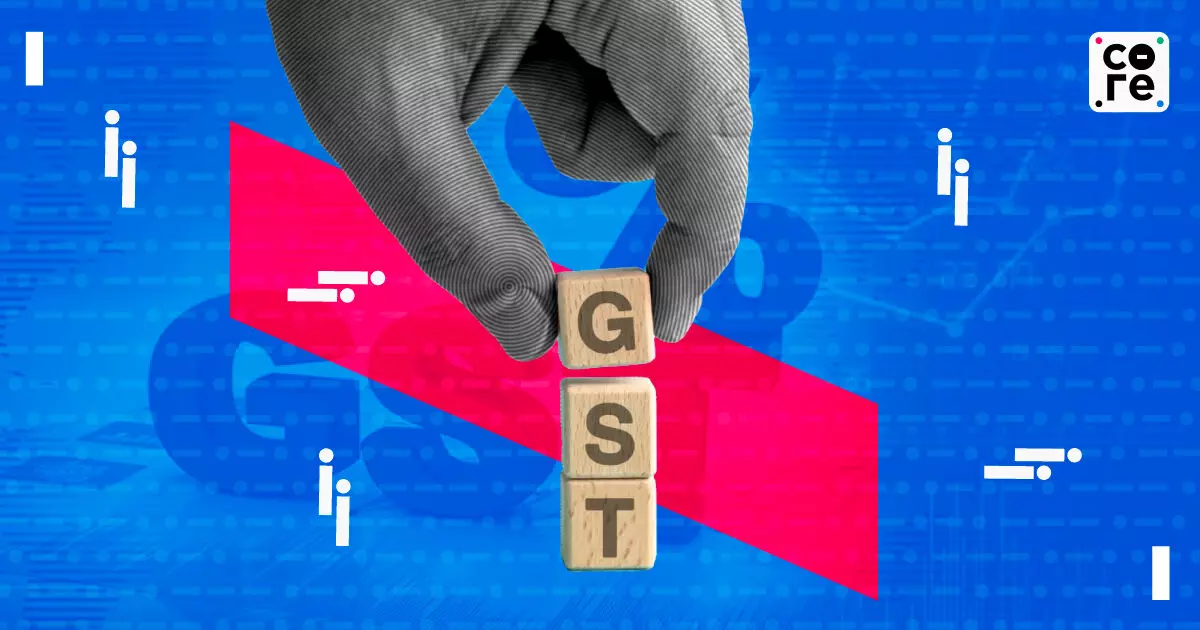
A Badly Timed Diwali Gift: Lessons From Modi’s GST Announcement
Modi’s early GST “Diwali gift” sparked market excitement but cooled consumer demand, dampening festive sales, leaving India’s biggest shopping season with a poorly timed surprise.

The Gist
Prime Minister Modi's recent announcement of a GST overhaul aims to simplify tax rates for Diwali, but has led to unexpected slowdowns in consumer demand.
- GST rates will be reduced to two tiers: 5% and 18%, down from four.
- Concerns arise as consumers delay purchases in anticipation of lower prices.
- The Central Board of Indirect Taxes urges stakeholders to avoid speculation on the proposed changes.
Prime Minister Narendra Modi, in his Independence Day address two weeks ago, announced a major overhaul of India’s Goods & Services Tax (GST) system with significantly lower rates this Diwali, which he described as a major festive gift from the Centre.
"I am going to give a great gift this Diwali. Over the past eight years, we implemented a major GST reform and simplified taxes. Now, the time has come for a review. We have conducted it, consulted with states, and are set to introduce a ‘next-generation GST reform’," he said in his Red Fort speech.
The proposal was to reduce GST to two tiers — 5% and 18%. Right now, there are four tiers of 5%, 12%, 18% and 28%.
The markets were predictably pleased, auto and consumer product stock prices shot up as analysts rerated the companies, for the likely spurt in sales, thanks to lower prices.
Demand Slows
But the announcement, well-intentioned as it was, has led to problems that may or may not have been anticipated. Demand has slowed down across most categories that could benefit from the lower tax rates.
Because who wants to buy an air conditioner or refrigerator or even a small car when you could save thousands of rupees in just a few weeks?
Not the value-conscious Indian consumer for sure.
Remember, this year Diwali is on October 21, which is earlier than usual and with the f...
Prime Minister Narendra Modi, in his Independence Day address two weeks ago, announced a major overhaul of India’s Goods & Services Tax (GST) system with significantly lower rates this Diwali, which he described as a major festive gift from the Centre.
"I am going to give a great gift this Diwali. Over the past eight years, we implemented a major GST reform and simplified taxes. Now, the time has come for a review. We have conducted it, consulted with states, and are set to introduce a ‘next-generation GST reform’," he said in his Red Fort speech.
The proposal was to reduce GST to two tiers — 5% and 18%. Right now, there are four tiers of 5%, 12%, 18% and 28%.
The markets were predictably pleased, auto and consumer product stock prices shot up as analysts rerated the companies, for the likely spurt in sales, thanks to lower prices.
Demand Slows
But the announcement, well-intentioned as it was, has led to problems that may or may not have been anticipated. Demand has slowed down across most categories that could benefit from the lower tax rates.
Because who wants to buy an air conditioner or refrigerator or even a small car when you could save thousands of rupees in just a few weeks?
Not the value-conscious Indian consumer for sure.
Remember, this year Diwali is on October 21, which is earlier than usual and with the festival season having started on Ganpathi which was August 27, it is a shorter festival season this year.
No wonder the industry is concerned.
Wait And Watch
A Grant Thornton Bharat analyst told Business Standard their internal estimates suggested a potential 25-30% impact on high-ticket segments like air conditioners and refrigerators if GST clarity is delayed.
For instance, a Rs 1.2 lakh smartphone could become 10% cheaper post-reform, prompting buyers to delay their decisions.
Reports also quoted several auto dealers saying their sales had slowed down in anticipation of rate cuts.
The rate cut rumours started flying so thick and fast that the government itself had to step in.
The Central Board of Indirect Taxes & Customs (CBIC), which administers GST and reports to the Ministry of Finance, posted on X, kindly requesting that speculation on GST rates be avoided.
“Decisions in this regard are taken collectively by the GST Council, which comprises of the Centre and States. Premature speculation gives rise to baseless rumours and may cause volatility in the markets.”
It then requested all stakeholders to wait till after the meeting of the GST Council.
The CBIC did not acknowledge that the rate speculation would not have begun if its top boss, that is the prime minister, had not announced the intent to cut rates to start with.
Lessons For Next Time
Meanwhile, Reuters reported on Monday that GST rates could be cut by at least 10 percentage points on some 175 products from daily use goods to small cars, small petrol hybrid cars, air conditioners and televisions.
You can’t stop people from speculating, and you can’t stop people from holding their purses back.
There will be rate cuts, no doubt, and they will do their job, of firing up purchases, bringing some festive smiles into Indian co
nsumers and investors in auto and consumer stocks. And fewer GST slabs are good for the economy and much needed, including as an economic counter move to the Trump tariffs, which hit around 12 days later after the speech.
The question really is if the announcement could have waited a little longer for a more optimum impact, or at least a shorter duration between likely implementation.
That’s a lesson for next time.
Modi’s early GST “Diwali gift” sparked market excitement but cooled consumer demand, dampening festive sales, leaving India’s biggest shopping season with a poorly timed surprise.

